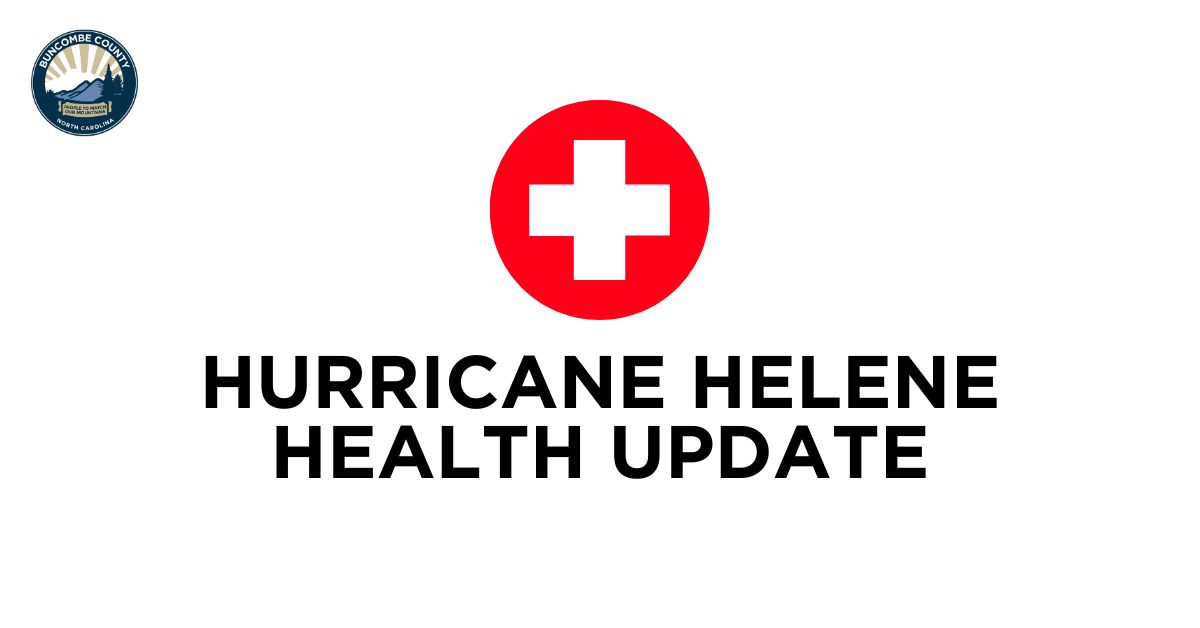This news item expired on Friday, November 1, 2024 so the information below could be outdated or incorrect.

(Para leer las actualizaciónes del condado de Buncombe en español, utilice el botón de cambio de idioma en el lado derecho de la página web.)
How to get your medications refilled:
The North Carolina Board of Pharmacy is maintaining a list of pharmacies in western NC that are open. Click here to find the list.
The list is being updated by the Board of Pharmacy every 30 minutes.
Some pharmacies that are open may not be on this list. This includes:
- Mission Hospital’s Outpatient Pharmacy at 509 Biltmore Ave., Entrance #4, is open 24/7 to fill prescriptions. They close for lunch from noon to 1 p.m. daily. They are not filling prescriptions for controlled substances.
If you are a pharmacy that is open and providing services, please notify the Board of Pharmacy via email at emergency@ncbop.org if possible or via the online form on their website.
Some pharmacies on the list include:
- CVS/pharmacy 505 Smokey Park Highway, Asheville
-
- CVS/pharmacy, 324 Long Shoals Road, Asheville
-
- Pinnacle Apothecary Candler, “Phone isn’t working currently, so come by. Hours M-F 10-4 until we resume power, then normal hrs M-F 8-6"
-
- PSA Pharmacy/Associated Pharmacy Services, Inc., 2294 US Hwy 70, Swannanoa
Click here for the full list.
Obtaining Prescription Refills
Emergency rules allow people to go to any open pharmacy with their prescription bottles to get a 30- or 90-day refill on their medications.
You do not need to go to the typical place you go to fill your prescriptions.
These rules also allow the pharmacy to refill the prescription even if there are no remaining refills indicated.
These types of emergency refill procedures cannot be used to fill prescriptions for Schedule II controlled substances which include pain medications containing hydrocodone or oxycodone and ADHD medications like Adderall and Ritalin.
All health insurance plans that are licensed to operate in the state are legally responsible to allow and cover prescriptions that are otherwise being filled “too soon” by people who reside in an area that is subject to an emergency declaration.
It is okay for someone other than the patient to pick up the prescription. Some medications may require the person picking up the medication to have a copy of the patient’s ID, but this is not the case for most medications.
Information about Food and Water
Water
- Only potable water should be used for drinking, food preparation, washing dishes and hands, brushing teeth, bathing, showering, or any other activity that could get water into your mouth or eyes.
- Potable water includes bottled water or other water labeled as potable water.
- If you are on municipal water and under a boil water advisory, you should boil your water for one minute.
- If you are unable to boil your water, you can add 8 drops of bleach (5-9% concentration) to a gallon of water.
- Drinking water should not be taken from creeks or streams.
- Non-potable water from creeks, streams, from rain, may be used to flush toilets sparingly.
- Do not use water from creeks and streams to wash your hands or to bathe.
- Use body/baby wipes to wipe your hands and follow it with hand sanitizer.
Food
- Prepared food, lunch meat, milk products, and soft cheese that were unrefrigerated for more than 6 hours or left out of coolers should be discarded.
- Raw meat products (except for seafood) that are cold to the touch and unspoiled may be consumed if thoroughly cooked.
- Consumers with food safety related questions may reach out to Safe Plates at 919-515-9842 for guidance.
All food service operations experiencing a loss of power, water, or sewer may not operate at this time unless an emergency operations plan has been approved by Buncombe County Environmental Health or the NC Department of Health & Human Services-Environmental Health Section.
If you are a permitted or licensed facility regulated by Buncombe County Environmental Health and have specific questions or concerns you can reach out to the NC Department of Health and Human Services-Environmental Health Section who is providing support to Buncombe County at 919-707-5999 or by email at ehpreparednessquestions@dhhs.nc.gov.